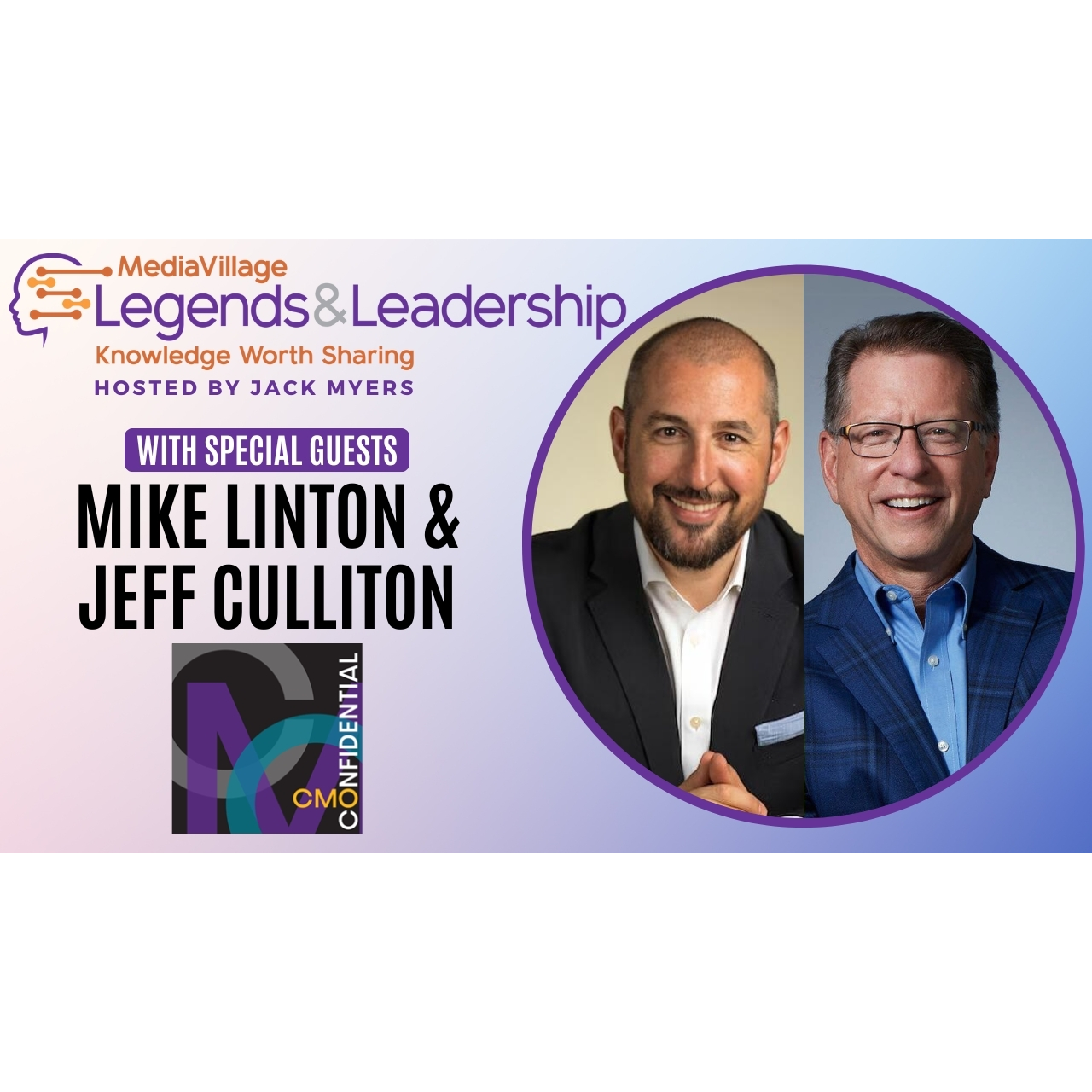Traditional Media Faces 'Armageddon': Marketing Legends Discuss AI, Procurement, and the Future of CMOs (VIDEO)

In this week's episode of Jack Myers' "Legends & Leadership," I hosted an insightful and controversial conversation with Mike Linton, renowned Chief Marketing Officer, and former agency President Jeff Culliton, now host and Executive Producer of the CMO Confidential podcast. Jack Myers' conversation with Mike Linton, and Jeff Culliton provided a wealth of insights into the current state and future direction of the marketing industry. From the evolving role of CMOs and the impact of AI on agencies to the challenges of education and the growing influence of procurement, the discussion highlighted the complex and dynamic nature of modern marketing. For current and future marketing professionals, this is a must view.
The Evolving Role of CMOs
Linton highlighted the rapid changes in the marketing landscape, emphasizing the dual challenge faced by CMOs today: integrating new tools like AI, big data, and influencer marketing, while managing the decline of traditional tools. "Your ability to combine all these things into one story for the company and drive profitable growth is super challenging," he noted. Despite the challenges, he believes that those who can navigate this complex landscape successfully will reap significant rewards.
Culliton echoed this sentiment, stressing the necessity for CMOs to possess "confident vulnerability" in this uncharted territory. He stated, "Somebody has to raise their hand and confidently say we don't know what the hell this is. And I also know nobody knows what the hell it is." This openness to experimentation and learning is crucial as marketing professionals grapple with the fast-paced changes brought about by AI and other technologies.
Challenges in Education and Training
A significant portion of the discussion focused on the gap between higher education and the practical needs of the marketing industry. Culliton pointed out that educational institutions are not equipped to keep pace with the rapid evolution of marketing tactics, resulting in graduates who are proficient in content creation but lack the skills to translate these efforts into business outcomes. "Schools are not built to create curriculum or class at this speed," he observed.
Linton underscored the importance of soft skills and vendor management, which are often overlooked in traditional marketing education. "The ability to pick right and then manage the vendor management in addition to your teams... is going to be a skill," he said. This gap in education places additional pressure on companies to provide training and development opportunities for new hires.
AI's Impact on Agencies
The conversation also touched on the pressures facing marketing agencies in the AI era. Linton and Culliton discussed how AI is reshaping agency services, leading to significant cost reductions and efficiency improvements. However, this shift also poses a threat to traditional agency models. "You're going to be looking at a calculated destruction of the old model," Culliton predicted, highlighting the need for agencies to adapt quickly to survive.
Despite the challenges, Culliton remains optimistic about the potential for innovation within the industry. He encourages agencies to embrace new tools and technologies, stating, "I think this is a gift to agencies... but I think it's going to come with some real pain before the gift is obtained."
The Role of Procurement in Media Buying
Linton and Culliton also addressed the evolving role of procurement teams in media buying and planning. The rise of marketing procurement professionals, many of whom have strong backgrounds in finance but little experience in marketing, presents both opportunities and challenges. Linton expressed concern about procurement's focus on cost reduction at the expense of strategic value. "Procurement provides a valuable service... but if they cannot understand the difference between cost and value, it becomes a problem," he warned.
The Importance of Financial Literacy
A recurring theme in the discussion was the need for marketers to be financially literate. Linton stressed that "the universal language of business is finance," and marketers must be able to translate their efforts into financial metrics to succeed. Culliton added that major media platforms, with their AI-driven tools and vast data resources, are increasingly capable of providing the financial insights that marketers need. This underscores the importance of collaboration between marketing and finance teams to achieve common goals.
Traditional Media is Facing Armageddon
One of the most controversial and attention-grabbing insights from the conversation came when Culliton described the future of traditional media as facing Armageddon. He explained, "Large companies are built not as innovators. You get in the walls and you get a lot of, you know, just this is the way we do it and some stagnation in pockets of innovation. The agencies are going to have a role, but it's going to be after a little bit of nuclear war." This stark analogy underscores the intense pressure traditional media companies face in adapting to the rapidly evolving landscape driven by AI and new marketing tools.
Linton added to this perspective by emphasizing the decline in traditional media tools and the urgency for legacy companies to evolve. He warned that "if your company is not evolving as a legacy media company at speed, and you are telling a story about how fast you're going to evolve, you're going to be found out."
For those looking to stay ahead in this rapidly changing field, Linton and Culliton's experiences and advice are invaluable. To gain deeper insights from these marketing leaders, viewers are encouraged to watch the full video of this enlightening conversation.


